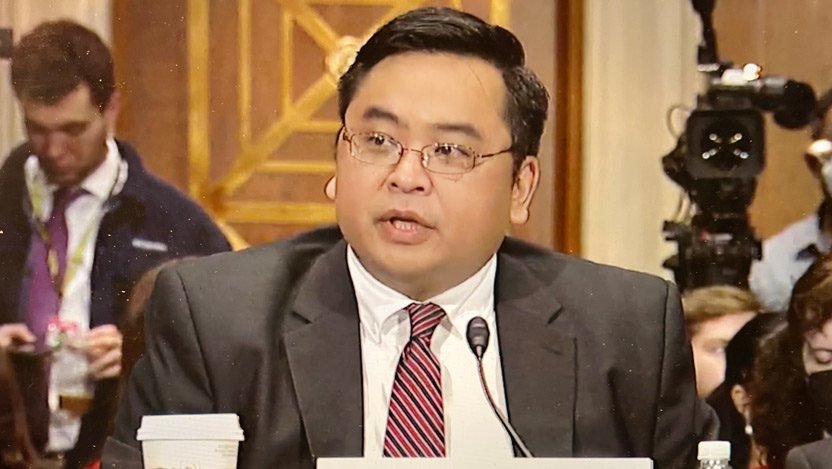UChicago health centers research provides key data to federal funding debate

This year, the United States government must decide how much funding it will provide over the next few years to the nation’s federally-qualified health centers (FQHCs). Health centers provide primary care to more than 30 million individuals annually in medically underserved communities, including low-income patients and uninsured patients. As congress debates this funding, research conducted by the University of Chicago could have significant impact on their decision-making.
The research, co-led by Profs. Marshall Chin and Elbert Huang, was commissioned in 2018 by the U.S. Department of Health and Human Services Health Resources and Services Administration’s (HRSA) Bureau of Primary Health Care. The project resulted in a series of 11 recently-published and soon-to-be-published papers that explore the value of FQHCs. Data from these reports was presented to congress by former graduate student and current research affiliate Robert Nocon ‘PhD20, now an assistant professor at Kaiser Permanente Bernard J. Tyson School of Medicine.
“The University of Chicago is a major place for the study of health centers,” said Huang, professor of medicine and public health sciences and director of the Center for Chronic Disease Research and Policy. “We have a body of research in this area that goes back 25 years. This project was a continuation of that work.”
“Health centers research takes an unusual combination of skills and competencies across multiple fields,” added Chin, Richard Parrillo Family Distinguished Service Professor of Healthcare Ethics in the Department of Medicine. “The University is set up in a way that encourages this type of cross-department, cross-discipline collaboration, and our culture and mission also align with health centers’ focus on community service and reducing health inequities.”

A boon to the community
For this project, the team’s research fell into three categories: quality of care and resource utilization, financial viability, and response to the changing payment policy environment. Key takeaways include:
- Health care centers deliver quality of care equal to or better than non-FQHCs
- Patients – both adult and children – who receive most of their primary care at health centers have lower use of specialty care and hospitalizations. This leads to a lower overall financial burden on the nation’s healthcare system.
- Most health centers use traditional payment models. A few larger centers have started to explore alternative payment models, which tie payment to outcomes instead of volume.
- The Affordable Care Act and expansion of Medicaid allowed health centers to increase volume, staffing, and revenue. This not only led to greater overall health quality in states that implemented Medicaid expansion, but also provided additional employment opportunities.
Federally-funded health centers – which must have a board that’s comprised of at least 51 percent community members – also offer wrap-around services that reflect the needs of the local population, the researchers noted. This includes mental health, legal, social, housing, transportation, and addiction services.
“Bottom line, what we see is that health centers provide quality primary care and a critical safety net to the nation’s most vulnerable,” said Huang. “Ultimately, this improves the overall health of the entire country.”
Probable impact on millions
Health centers have bipartisan support, but Democrats and Republicans diverge on the amount of funding they think FQHCs should receive. For Huang and Chin, they hope their research provides data that both sides can use to help them make their decision.
“There are very few times in a researcher’s career where there’s such a direct line between their work and the probable impact on millions of people,” said Chin, also an associate director of the MacLean Center for Clinical Medical Ethics and co-director of the Chicago Center for Diabetes Translation Research. “It’s a great example of what we’re able to do at this University.”
